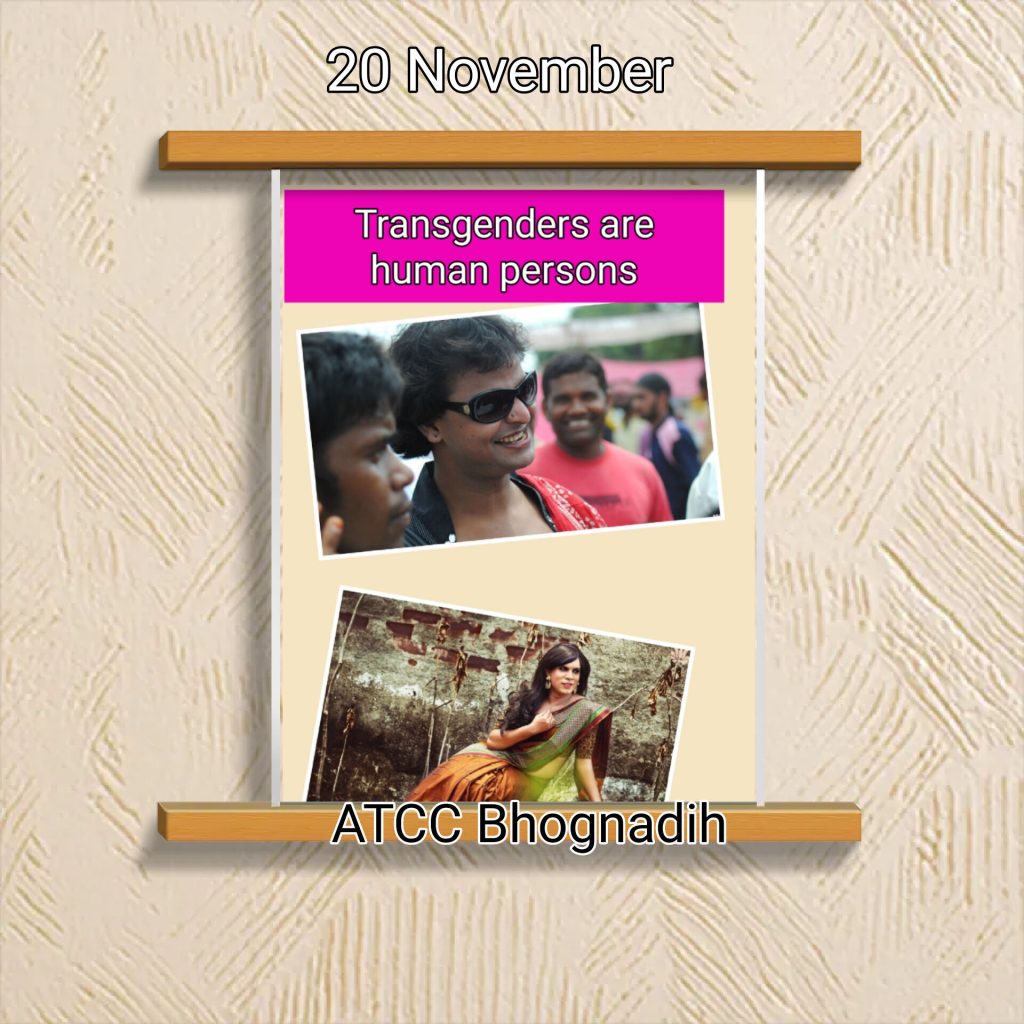
The International Transgender Day of Remembrance was launched to memorialize those who were murdered due to transphobia.
The Transgender Day of Remembrance was founded in 1999 by a small transgender group. The group included Gwendolyn Ann Smith, Nancy Nangeroni, and Jahaira De Alto, to memorialize the murders of Black transgender women Rita Hester in Allston, Massachusetts, and Chanelle Pickett in Watertown, Massachusetts. Today it draws attention to all sorts of violence and discrimination perpetrated against transgender persons.
A transgender (short form trans) is a person whose gender identity differs from that typically associated with the sex that was assigned at birth.
That is to say, their sex is not acknowledged and accepted by society as male or female.
Transgender is an umbrella term that includes different types of gender variant people (including transsexual persons).
A transgender man (short form : trans man ) is a man who is assigned as female at birth.
A transgender woman (short form: trans woman) is a woman who is assigned as male at birth.
Transgenders face discrimination in their own families and in society at large, for no fault of their own. Such discrimination may end up in murder or social ostracism.
Generally, people do not realise and accept that they too are human beings. If they are born that way, it was not their choice.
The 2011 census in India showed their number as 4.8 million. The Parliament passed ‘The Transgender Persons (Protection of Rights) Act, 2019. The Act aimed to promote their human dignity and welfare.
Features of the Act:
1. Prohibition against discrimination.
2. Right to be recognized as Transgender.
3. Their right to get identity certificate from the District Magistrate.
4. Right to residence. Right to belong to their own natural family.
4. Right to adequate health care.
5. The Act criminalizes the following: begging, forced labour, denial of use of public place, denial of residence, and physical sexual, verbal , emotional or economic abuse.
6. Right to welfare schemes, programs and health care.
7. Respect their human dignity.
8. Non discrimination in educational institutions or in employment.
The Election Commission has allowed a provision for them to tick their identity as ‘other’.
In 2014 the Supreme Court of India described them as ‘Third gender.’ They are commonly known as kinnar, hijara, aaravani and jogta.
What is important is that, as we all belong to a civilized society, we accept the transgenders as human persons with dignity and human rights.
Any form of discrimination or prejudice on our part is not human.